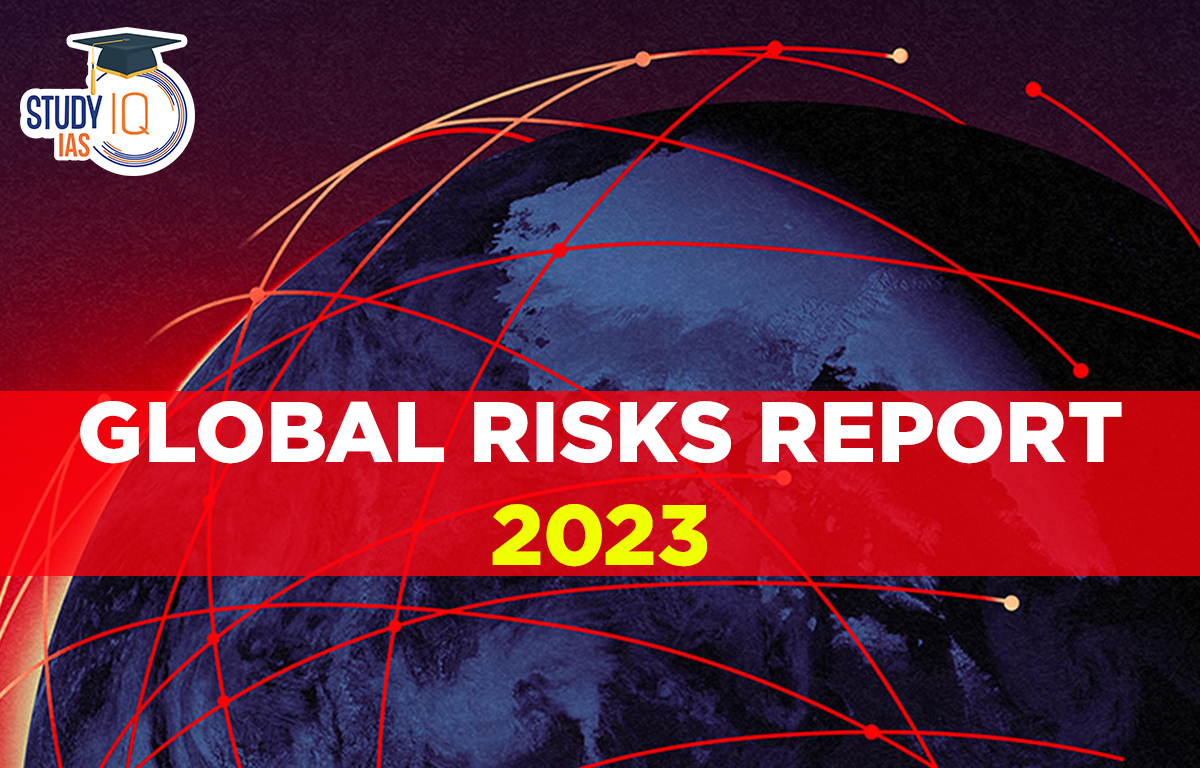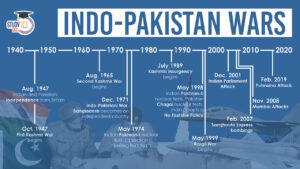Table of Contents
Context: The World Economic Forum (WEF) has published the Global Risks Report 2023.
About the Global Risks Report 2023
- The Global Risks Report is an annual study published by the World Economic Forum ahead of the Forum’s Annual Meeting in Davos, Switzerland.
- Based on the work of the Global Risk Network, the report describes changes occurring in the global risks landscape from year to year.
- The report also explores the interconnectedness of risks, and considers how the strategies for the mitigation of global risks might be structured.
What is Global Risk?
- They constitute such risks which negatively impact a significant proportion of global gross domestic product, population or natural resources.
- The criteria for what constitutes a global risk have been set as follows:

Key Findings of the Report
- Major Global Risks:
- In the next 2 years: Cost of living; Natural disasters and extreme weather events; Geoeconomic confrontation
- In the next 10 years: Failure to mitigate climate change; Biodiversity loss and ecosystem collapse
- Major Risks For India: Digital inequality; geopolitical confrontation for resources, the rising cost of living, debt crisis, natural disasters and extreme weather events.
- Technologies such as AI, Quantum and Biotechnology are going to exacerbate the inequalities and digital divide (if no action is taken to mitigate it).
- Economic and Geopolitical Risks:
- Covid-19 and Ukraine war has resulted in rising inflation, rapid normalization of monetary policies, low-growth and low-investment era.
- A miscalibration between monetary and fiscal policies will raise the likelihood of liquidity shocks, signalling a more prolonged economic downturn and debt distress on a global scale.
- Geopolitical fragmentation will drive geoeconomic warfare and heighten the risk of multi-domain conflicts.
- Dangerous interconnections: Over the next 10 years or by 2033, the interconnections between biodiversity loss, pollution, natural resource consumption, climate change and socioeconomic drivers will make for a dangerous mix.
- Disasters and extreme weather events:
- The impact of natural disasters or extreme weather events disproportionately affects low- and middle-income countries.
- Such events figure among the top five risks in 25 countries, especially developing coastal countries across Latin America, Africa and South-East Asia including India.
- Climate action, biodiversity loss:
- The world has struggled to make the required progress on climate change despite 30 years of global climate advocacy and diplomacy, the report flagged.
- Biodiversity within and between ecosystems is already declining faster than at any other point during human history.
- The Kunming-Montreal Global Biodiversity Framework (GBF) adopted at the UNCBD’s COP15 is thus a significant breakthrough as far as global action on biodiversity is concerned.
Way Forward
- Improving risk identification and foresight: Enhanced risk identification and foresight can be a key enabler for strategic decision-making, agenda-setting and resilience measures.
- Investing in multi-domain, cross-sector risk preparedness: As global risks become more intertwined, preparedness also needs to become more of a shared responsibility between sectors, with local and national governments, business and civil society each playing to their strengths.
- Re-building and strengthening global risk preparedness cooperation: International organizations will continue to play an essential role in global preparedness. Additionally, specific cooperation at sectoral, bilateral and regional levels will become even more important in this environment.
About the World Economic Forum (WEF)
- Establishment: The WEF is an international non-governmental organization founded in 1971.
- First named the European Management Forum, it changed its name to the WEF in 1987 and broadened its vision to include providing a platform for resolving international conflicts.
- Headquarters: Cologny, Switzerland.
- Objective: The Forum engages the foremost political, business, cultural and other leaders of society to shape global, regional and industry agendas.
- Major publications by WEF:
- Global Competitiveness Report
- Global Gender Gap Report
- Global Travel and Tourism Report
- Energy Transition Index
- Global IT Report (WEF along with INSEAD, and Cornell University)
- Global Risks Report
- Global Social Mobility Report
- Chief Economists Outlook


 Pakistan-Occupied Kashmir (PoK): History...
Pakistan-Occupied Kashmir (PoK): History...
 List of Indo-Pakistan Wars and Conflicts...
List of Indo-Pakistan Wars and Conflicts...
 Daily Quiz 24 April 2025
Daily Quiz 24 April 2025





















